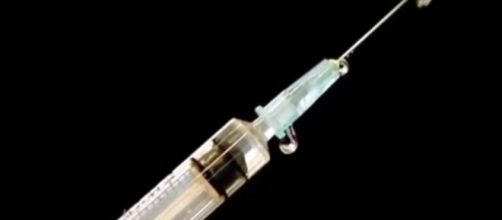Lawyers for the state of Arkansas filed a brief on Wednesday with the Arkansas Supreme Court. The attorneys want the high court to reverse a judge’s ruling mandating that prison officials must disclose more details about drugs administered in their Lethal Injection protocol, according to U.S. News & World Report. The state’s attorneys object to revealing additional information about the specific drugs that comprise the death cocktail drug mix because, they say, the disclosure will make it “impossible” to obtain the drugs intended to be administered.
Last spring, a judge ordered prison officials to release labels and package inserts relevant to the death cocktail drugs. The Arkansas Supreme Court, however, set aside the judge’s ruling while the state appealed, U.S. News & World Report relayed.
Judge orders state’s Department of Correction to disclose execution drugs
On Tuesday, the Department of Correction (DOC), AR, was ordered by Circuit Court Judge Mackie Pierce, Pulaski County, to release the labeling documents regarding the lethal injection drugs, ArkansasOnline reported. The DOC must meet the judge’s order by next week unless the state’s lawyers can sway the Arkansas high court to stay his ruling as a result of the brief the attorneys filed yesterday.
Prison officials cited the 2015 Method of Execution Act as their legal basis for withholding the labeling documents from the public. Judge Pierce, however, determined that the Arkansas Freedom of Information Act supersedes the law that the state’s attorneys cited, which is Arkansas Code 5-4-614.
Judge Pierce’s ruling denotes the second time that a circuit court judge decided that the state code doesn’t exclude transparency when it comes to disclosing information identifying drug manufacturers with respect to the state’s open-record statutes.
Midazolam package inserts must be released by September 28
If the state’s high court upholds Pierce’s ruling, the DOC will have to give attorney Steven Shults the unredacted drug package inserts for the sedative Midazolam by September 28. Judge Pierce stated that Arkansas lawmakers had the option to provided secrecy for pharmaceutical makers in an execution law in 2015.
State legislators, however, did not use that opportunity.
Judge Pierce pointed out that the legislators “know what manufacturers are” and “what the issues were,” WREG reported. Additionally, Pierce noted that the legislators didn’t include a key word possibly three times.
Shults prevailed in a similar case in April 2017 about the execution drug potassium chloride. State lawyers are appealing the case to the Arkansas Supreme Court. As well, the attorneys plan to appeal Judge Pierce’s ruling.
Arkansas delayed executions when drug makers didn’t want to assist
In April 2017, Arkansas set eight executions and carried out four capital punishment sentences as the state’s earlier supply of midazolam was nearing its expiration date.
There was an almost 12-year delay between the state’s executions partially attributed to pharmaceutical makers not wanting their life-saving drugs administered in lethal injections.
As a result of drug manufacturers disinclined to have their products included in lethal injection cocktails, Arkansas along with additional states effected secrecy in their death penalty procedures. The states believed that protests would target individuals and companies if the public was aware of the manufacturers’ assistance. With privacy assured, though, the states thought some companies might be more willing to assist.
The state of Arkansas has recently obtained ample supply of midazolam to carry out two executions, according to WREG. In seven weeks, Jack Greene is scheduled to die by lethal injection


